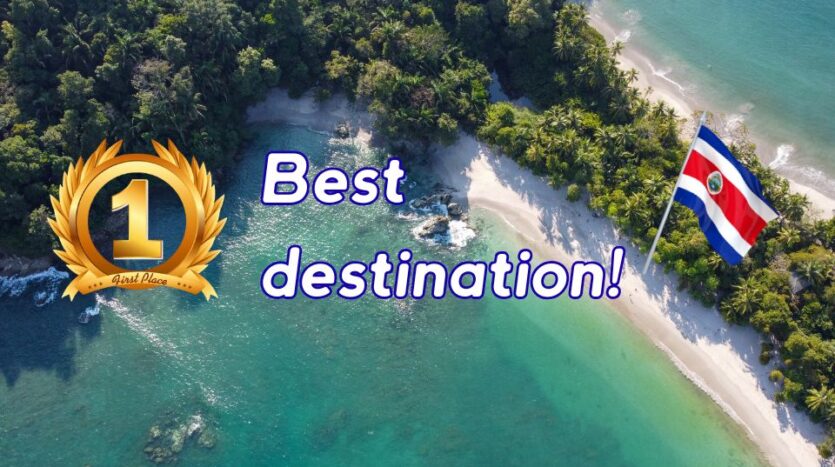Costa Rica Emerges as Latin America’s Top Haven for Millionaires
The global migration of high-net-worth individuals (HNWIs) has become a key indicator of where wealth — and confidence — is flowing. In an era marked by geopolitical instability, inflation, and shifting tax regimes, the wealthy are looking for more than just financial advantages. Security, political stability, and above all, quality of life are increasingly driving relocation decisions.
According to the latest Henley & Partners Private Wealth Migration Report 2025, Costa Rica is set to become the leading Latin American destination for millionaires, outpacing traditional hubs such as Panama and the Cayman Islands. By the end of 2025, the Central American nation is projected to record a net inflow of 350 millionaires.
On a global scale, the United Arab Emirates (+9,800), the United States (+7,500), and Italy (+3,600) are forecast to attract the highest net inflows of wealthy residents, reflecting how lifestyle, climate, and favorable residency programs are reshaping the global wealth map.
Why Costa Rica?
The rise of Costa Rica as a millionaire magnet is not coincidental. A study conducted by the National University’s Institute of Social Studies on Population (Idespo-UNA) highlights the key factors:
-
Climate: 87.9% of respondents say the country’s year-round tropical weather is a decisive attraction.
-
Affordable lifestyle for foreigners: 74.8% note that expatriates enjoy a comfortable cost of living compared to other destinations.
-
Investment opportunities: 73.3% point to growth in real estate, tourism, and sustainable projects.
-
Healthcare and stability: Costa Rica is recognized for its robust public-private healthcare system (62.5%) and long-standing political stability (55.3%).
Additional factors also play a role. The country abolished its army in 1949, allocating resources to education and health instead — a model that appeals to socially conscious investors. Moreover, Costa Rica is internationally recognized for its commitment to sustainability: 99% of its electricity is generated from renewable sources, a powerful draw for those seeking eco-friendly investments.
Net Migration of Millionaires in the Americas (2025 Projection)
| Country | Projected Net Inflow/Outflow | Estimated Wealth of Millionaires (USD billion) |
|---|---|---|
| United States | +7,500 | 43.7 |
| Canada | +1,000 | 5.7 |
| Costa Rica | +350 | 2.8 |
| Panama | +300 | 2.4 |
| Cayman Islands | +200 | 3.7 |
| Argentina | -100 | 0.7 |
| Mexico | -150 | 1.1 |
| Colombia | -150 | 1.0 |
| Brazil | -1,200 | 8.4 |
The Shadow of Gentrification
While the arrival of wealthy residents fuels economic growth — 43.1% of Costa Ricans believe it stimulates local consumption — it also raises alarms about gentrification and rising inequality.
-
86.8% believe foreigners are “taking over land in coastal areas.”
-
76.9% fear soaring property prices will push locals out of the market.
-
66.2% report a general increase in the cost of living.
So strong are these concerns that 82.4% of respondents favor stricter laws regulating land sales in areas of high scenic and ecological value. Popular coastal towns like Tamarindo, Nosara, and Santa Teresa have already experienced sharp spikes in property prices, with luxury developments increasingly targeting foreign buyers.
Opportunities for Investors
For international investors — particularly from North America and Europe — the Costa Rican boom presents a window of opportunity. Demand for high-end real estate is rising, particularly in coastal areas and the Central Valley around San José. The influx of affluent residents is also fueling growth in sectors such as private healthcare, bilingual education, and luxury tourism.
Residency options are another attractive factor. Programs such as the Investor Visa (requiring a minimum investment of $150,000, recently reduced from $200,000) and the Pensionado Program for retirees make the legal pathway to residency relatively straightforward.
A Country at a Crossroads
Costa Rica’s challenge will be balancing the inflow of global wealth with the protection of its local communities and natural assets. If managed carefully, the country could solidify its reputation as the most attractive hub for wealthy expatriates in Latin America. But if left unchecked, rising inequality and displacement may undermine the very qualities that make Costa Rica so appealing in the first place.
Ultimately, Costa Rica’s growing appeal among millionaires highlights both the opportunities and the challenges of a country in transformation. If it can harness foreign investment to strengthen its economy while ensuring that local communities remain protected, Costa Rica may well secure its place as the most desirable destination in Latin America for wealthy expatriates. But the delicate balance between growth and preservation will determine whether this surge of prosperity becomes a sustainable success story — or a cautionary tale.


 Sito web in Italiano
Sito web in Italiano